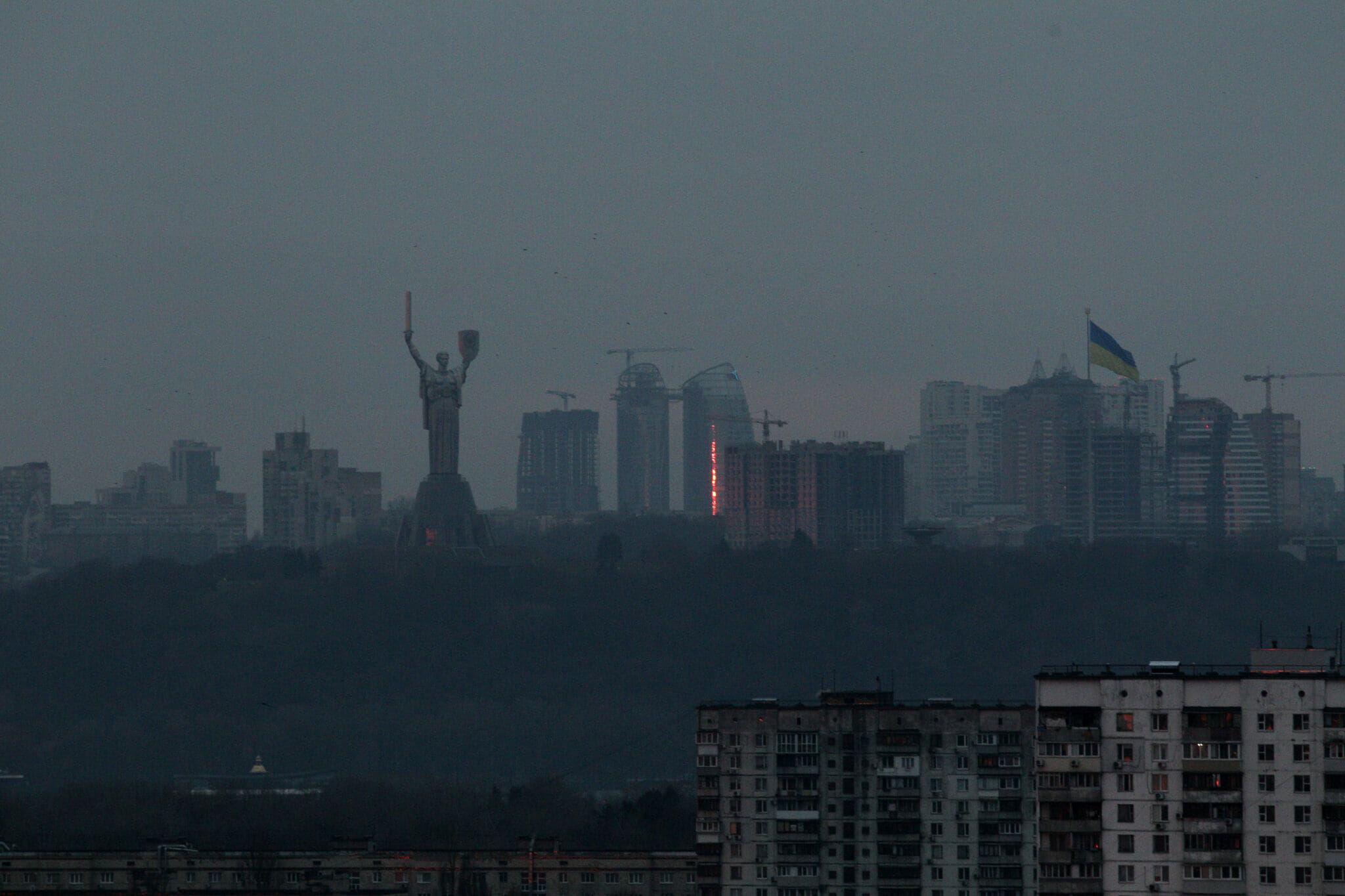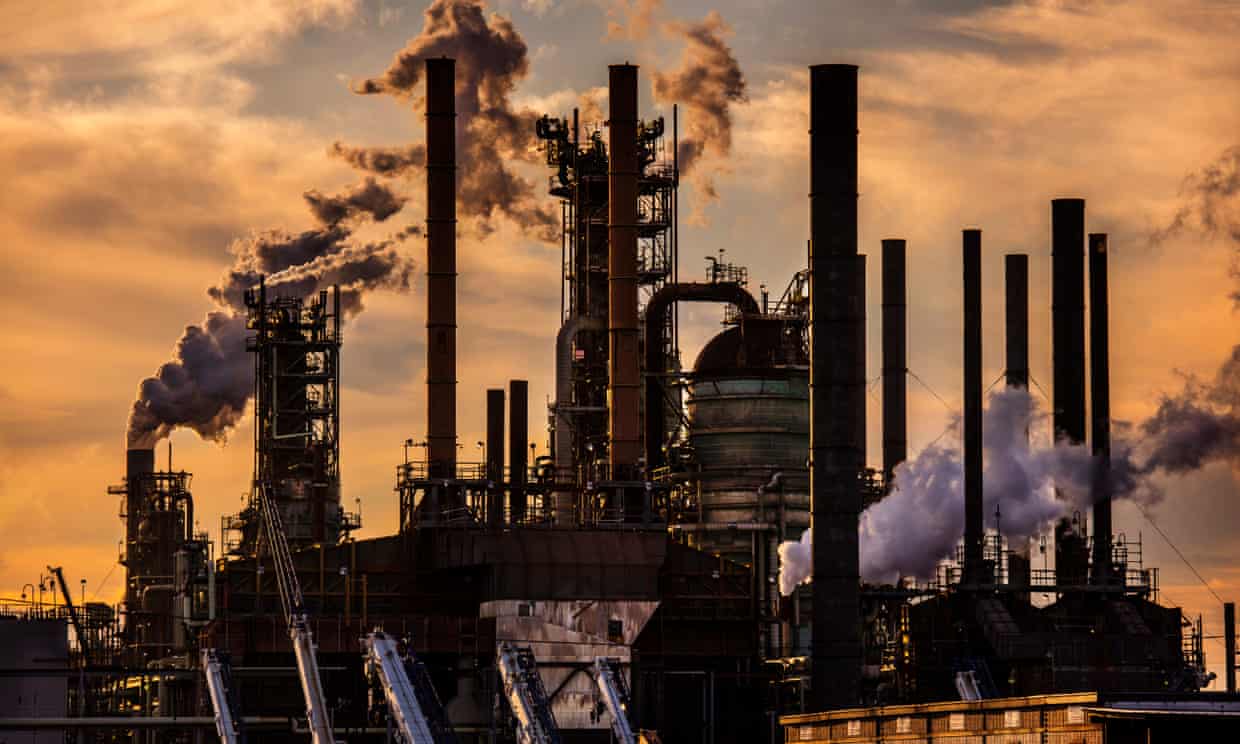Sign up to receive our weekly newsletter.
CCNow’s Andrew McCormick has a column out today in CJR, excerpted below that offers important guidance for journalists covering the ongoing energy crisis.
Last week, on the prank and frat-culture podcast Full Send special guest Donald Trump was asked about the war in Ukraine and how he predicts it will unfold. “Well, and I said this a long time ago,” the former president began. “If this happens, we are playing right into their hands. Green energy. The windmills don’t work. They’re too expensive. They kill all the birds. They ruin your landscapes. And yet the environmentalists love the windmills.”
It was a jarring non-sequitur, but it served a purpose. Since even before Russia’s formal invasion of Ukraine commenced, the political right has used the conflict and attendant energy crisis as platforms to excoriate Democratic energy policies and vilify climate action. Pointing to gas prices, which have reached record highs in recent weeks, they’ve blamed Joe Biden for, in their words, banning domestic fossil fuel production and specifically killing the Keystone XL pipeline. Summoning ghosts of slogans past, the solution to rising energy prices, they say, is to “drill, baby, drill.”
These talking points, in addition to being the new subjects of Republican political advertising, have featured prominently in right-wing media—Fox News, the New York Post, the Wall Street Journal opinion section, and all the rest. They’ve received a boost, too, however, from more reputable outlets, many of which have credulously reported Republicans’ charges against the president as little more than routine partisan bickering. That’s unfortunate, because almost all the claims are misleading, at best, or outright false.
Why does all this matter? Set aside for a moment journalists’ responsibility to be honest moderators of American political discourse. In late February, just after Russia invaded Ukraine, a major new report by the UN warned that climate change is advancing rapidly and might soon outpace humanity’s ability to adapt, unless we halt fossil fuel consumption and rein in other sources of greenhouse gas emissions. The report had its moment in the headlines, but as bombs fell over Kyiv and Russian troops advanced farther into Ukraine, understandably it faded from the news cycle. The fact remains, however, that humanity has vanishingly little time to implement far-reaching change if it hopes to limit global heating to 1.5 degrees Celsius and thereby avoid the worst climate impacts.
For the foreseeable future, every government decision related to fossil fuels and clean energy carries direct implications for our collective climate fortunes. For journalists, then, clarity and accuracy on these subjects aren’t just journalistic best practices—they’re existential imperatives. We should leave cynical politics to the politicians; even in the context of a frightening new war, this is a climate change story. Much coverage of the current energy debate has not mentioned climate at all. Read the full column at CJR…
More from us
Talking Shop. Watch the video from our webinar this week on the challenges and opportunities for climate reporting posed by Russia’s invasion of Ukraine, featuring panelists Naomi Klein of The Intercept, Sammy Roth of the Los Angeles Times, and Nathaniel Bullard of BloombergNEF. Watch now…
“Climate emergency.” That’s what thousands of scientists call it. If you represent a news organization that wants to join some of the leading names in news that have signed the CCNow climate emergency statement, email us at editors@coveringclimatenow.org. See the statement…
Noteworthy stories
Meeting today. EU environment ministers are meeting today to assess their progress on negotiating new climate change policies. As energy prices climb, countries are divided over whether they should ramp up or slow down their plans to reduce carbon emissions. By Kate Abnett at Reuters…
Is this really a good idea? The Biden administration said on Wednesday it had authorized additional exports of liquefied natural gas from two major facilities on the US Gulf Coast, as Europe aims to reduce its dependence on oil from Russia. By Rachel Frazin at The Hill…
Food prices. Russia’s invasion of Ukraine is driving up the price of grain and more, adding pressure to a global food system already suffering the effects of climate-driven drought and extreme weather. The two countries are big exporters of wheat, maize and barley that much of the world relies on to produce food. By Fiona Harvey at the Guardian…
Return on Investment. Senator Joe Manchin, Democrat of West Virginia, told fossil fuel executives at an industry event that they should demand a “return on their investment” when donating to politicians’ campaigns. Manchin and other Senators drenched in fossil fuel money then sank the nomination of Sarah Bloom Raskin as vice chair for supervision at the Federal Reserve due to her willingness to integrate climate risk into banking regulation. By Kate Aronoff at The New Republic…
It’s personal. Directors of Shell are being sued by activist shareholders for failing to develop a corporate strategy in line with the Paris agreement. The lawsuit, believed to be the first such case of its kind, claims the 13 directors are personally liable for the failure. By Sam Meredith at CNBC…
Wrong tree, wrong place. In the name of fighting climate change, billions of trees have been planted in scores of countries. Done correctly, reforestation can benefit the climate and ecosystems, but planting the wrong trees in the wrong place is doing just the opposite. By Catrin Einhorn at The New York Times…
Republication Recommendations
The following stories deserve special consideration for republication by CCNow partners:
- Oil and Gas Industry Heavily Outspends Clean Energy and Environmental Groups on Lobbying in California – Capital & Main
- The man who could help big oil derail America’s climate fight – The Guardian, as part of their “Climate Crimes” series with CCNow
For partner outlets: to submit stories for sharing, please use this form. As always, instructions for republishing and the full list of stories available for republication can be found in our Sharing Library.
Odds & Ends
Opposing renewables. The Sabin Center for Climate Change Law has updated its report on opposition to renewable energy facilities in the United States. Since September, local policies opposing new wind and solar projects have increased by 17.5% and the number of renewable projects that have been contested has increased by 23.6%. Learn more…
Russian Tanker Tracker. Greenpeace has launched a bot tracking the perhaps surprisingly large number of oil and gas-carrying supertankers still leaving Russian ports. Journalists might use the information and visuals in stories about how the Ukraine war is affecting global energy supplies and prices. Learn more…
SEJ student contest. The Society of Environmental Journalists is seeking submissions from high school and college students on the topic of self-censorship and freedom of the press in student media related to climate and environmental issues. Learn more…
Jobs. Inside Climate news is looking for a climate, health and justice reporter. GreenBiz is seeking a climate tech editor. The Macon Telegraph (Georgia, US) is hiring an environment reporter. Maine Public Radio is recruiting a climate reporter.
If you have any feedback on this newsletter, or know of information that should be included here, shoot us a note at editors@coveringclimatenow.org

